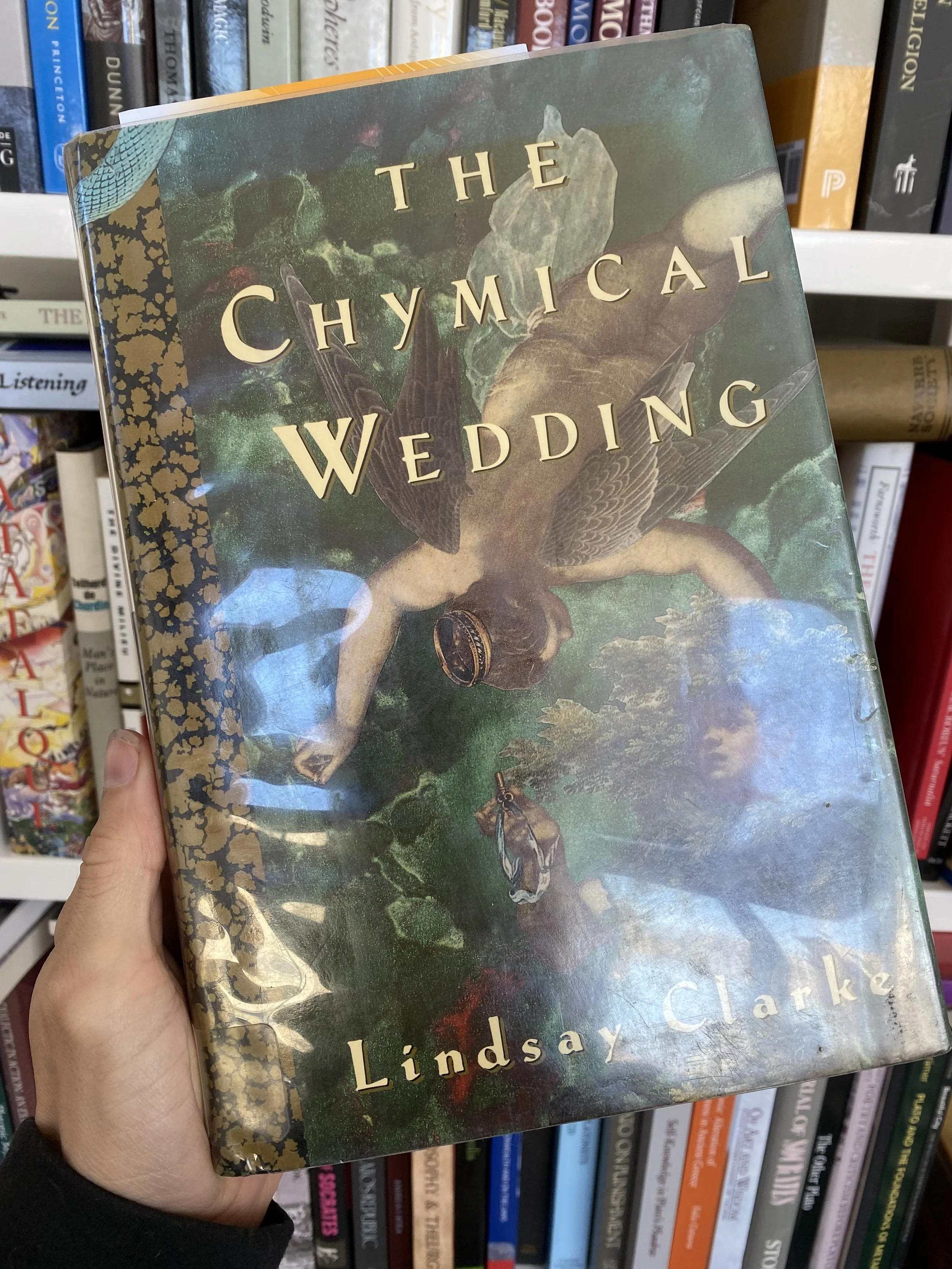Christianity and the Inner Quest
Is outward belief in Christianity enough—or must one also engage in a more personal, philosophical search to truly know the self and the divine? In this reflective passage from The Chymical Wedding, Lindsay Clarke explores the quiet tension between two men—Frere and Agnew—as they confront questions of spiritual identity and inner conflict. Set against the backdrop of music drifting in from another room, their conversation shifts from theological discourse to a more intimate, unspoken reckoning with loneliness, vocation, and personal doubt. Clarke masterfully uses silence, music, and the contrasting inner worlds of the characters to suggest that beneath the surface of belief lies a deeper alchemical struggle—a “chymical wedding” of opposites within the soul:
The Chymical Wedding by Lindsay Clarke.
‘Then consider this,’ Agnew responded with the gusto of a man launched upon his favourite theme. ‘Christ came into the world eighteen and a half centuries ago. He taught love of one’s neighbour and forgiveness of sins. He healed the sick, raised the dead, resisted the Devil, took our sins upon himself, suffered for it, died, and rose again. All that could be done for the world he did. Yet it remains a sorry place, sir, and man a sorry creature within it.’
Frere was a little startled by the sudden vehemence. ‘But our Redeemer liveth, Sir Henry,’ he protested mildly, ‘and God’s grace abides.’
‘Precisely so. But is that the end of the matter, sir? All the evidence proclaims that the work of redemption remains incomplete. It is up to us now. We were created in the Divine Image, Mr Frere, and a residual germ of that divinity remains occulted within us even in the fallen state. We are more, far more, than the beasts that perish. But if we are to raise ourselves from the blind world of sense into which, like poor Stukely, we have fallen, there is much to be done.’
‘For which reason we have a church surely?’ Frere answered; then added, ‘…with all its frailties.’
‘And I remain a faithful member, sir. If you take the living you will find me praying and singing with the best of them. But it is not enough, I wonder, to put on our Sunday faces and recite the Apostles’ Creed?’
‘Indeed not,’ Frere began.
‘Is it enough even to practise good works, to keep an open, charitable heart? How am I to love my neighbour as myself, sir, if I remain in ignorance of who I myself deeply am? And how is a man to know himself, to discover the elemental constituents of his own being, unless he takes a conscious part in the great experiment of Nature? As you yourself opined, man, there are great mysteries.’ By now there was a hot light in Agnew’s eyes.
And a flutter of anxiety in Frere’s. ‘There are also great dangers, Sir Henry.’
‘Of which, Mr Frere, your Hermetical philosopher is more aware than most.’ There, it was out. Let the parson make what he might of it.
‘You consider yourself to be… an Hermetic?’ It was difficult for Frere to keep the surprise, the incredulity from his voice.
‘That question was once put to a philosopher by a king,’ Agnew returned. ‘I might answer with him that I am a Christian, and it is no disgrace to be that and an Hermetic at the same time.’
‘You see no conflict?’
‘On the contrary, sir: I see a complement.’

